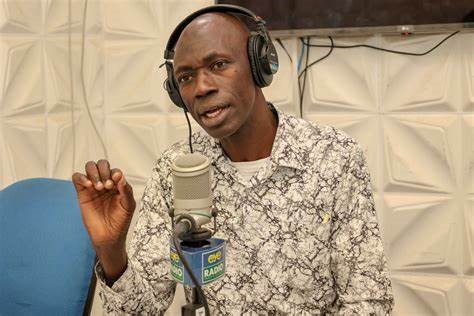
As South Sudan joins the world in observing the International Day for the Elimination of Sexual Violence in Conflict, civil society organizations are urging the government to take solid steps to end both gender-based violence (GBV) and sexual violence.
The day, marked each year on the 19th of June, aims to raise awareness about the need to end conflict-related sexual violence and honor victims and survivors of sexual violence around the world.
Among the activists intensifying the call for urgent government action on GVB is Edmund Yakani, Executive Director of Community Empowerment for Progress Organization (CEPO).
In a media statement, Yakani said that the government must act swiftly against what he termed a persistent menace of sexually related violence.
He noted that ongoing clashes between South Sudan People’s Defense Forces (SSPDF) and Sudan People’s Liberation Movement in Opposition (SPLM-IO) continue to fuel high incidences of sexual violence.
“I would like to call upon every commander of forces in the government and in the armed opposition to make sure your soldiers during confrontation should abstain from sexual violence or should not take advantage of the violence and then want to commit sexual violence against civilians,” he said.
A recent United Nations report validates Yakani’s concerns, listing both the SSPDF and SPLM-IO as parties responsible for committing acts of sexual violence. The report documented a shocking 246 cases of conflict-related sexual violence (CRSV) in 2024 alone.
Yakani said the government has the primary responsibility to ensure there is accountability for perpetrators.
“We are calling upon the leadership of South Sudan People’s Defense Forces (SSPDF) and particularly the Chief of Defense Forces to ensure that soldiers who commit sexual, gender violence or any human rights violation be held accountable,” he said, while acknowledging that some military personnel have faced sanctions for such crimes.
Echoing the same demands, Ter Manyang, Executive Director of Center for Peace and Advocacy (CPA), emphasized the alarming prevalence of gender-based violence (GBV) in the nation, attributing it to deep-rooted cultural norms and systemic gender inequality.
“South Sudan remains one of the countries where gender-based violence is alarmingly widespread. Deep-rooted cultural perceptions contribute significantly to the normalisation of violence, especially against women and girls. We must challenge and change these beliefs,” he appealed.
He mentioned the need for a comprehensive strategy that also recognizes that boys and men can be victims of GBV.
The calls from civil society are reinforced by international partners. Just this week, the European Union’s envoy to South Sudan urged the government to enact the long-pending Anti-Gender-Based Violence Bill to ensure women are protected, especially amidst ongoing conflict.
Activists are advocating for tough legislation and improved enforcement to safeguard survivors and hold perpetrators accountable.
They also highlight the critical need for accessible, survivor-focused support services, including medical, psychological, and legal assistance.
In a positive development, mobile courts have been deployed to several states in 2025 to try serious criminal cases, including SGBV, bringing an impression of formal justice to regions long deprived of it.
Sexual violence is a widespread and serious humanitarian concern in South Sudan. Over a decade of conflict and fighting between communities has led to sexual violence being seen as normal among those who carry weapons, as well as civilians. It has also strengthened existing harmful social norms that lead to blaming the victim.
Stigma, including being rejected by family, divorce, and isolation from the community, are major reasons why most victims and survivors are afraid to seek help.
This delay in getting necessary care makes many long-term problems worse for victims and survivors and their families, including children being born as a result of rape.
A lack of knowledge and very few safe and accessible services in conflict-affected areas also make it harder for survivors to get life-saving care.
The outbreak of conflict in Sudan in 2023, which led to many refugees and people returning home, also meant an increased number of survivors struggled to access the already limited services.

